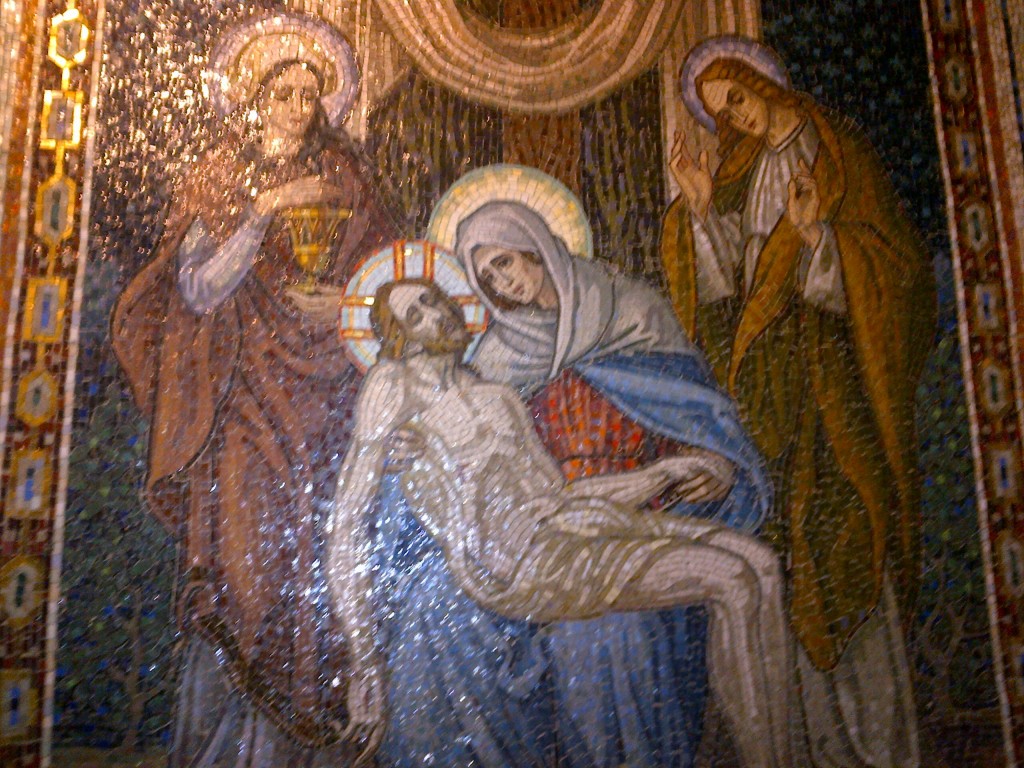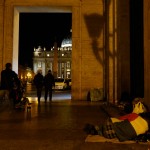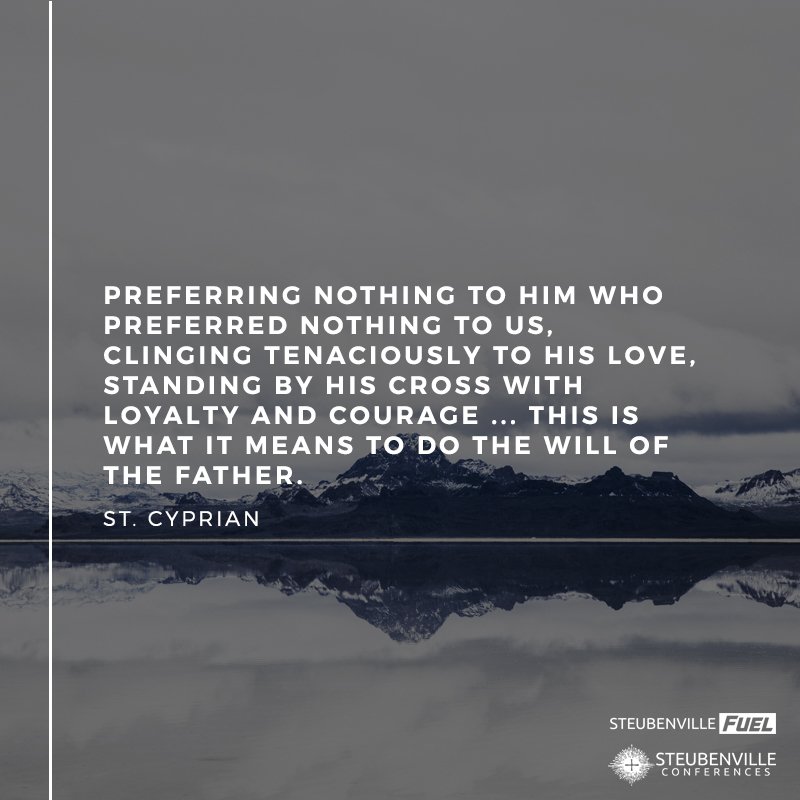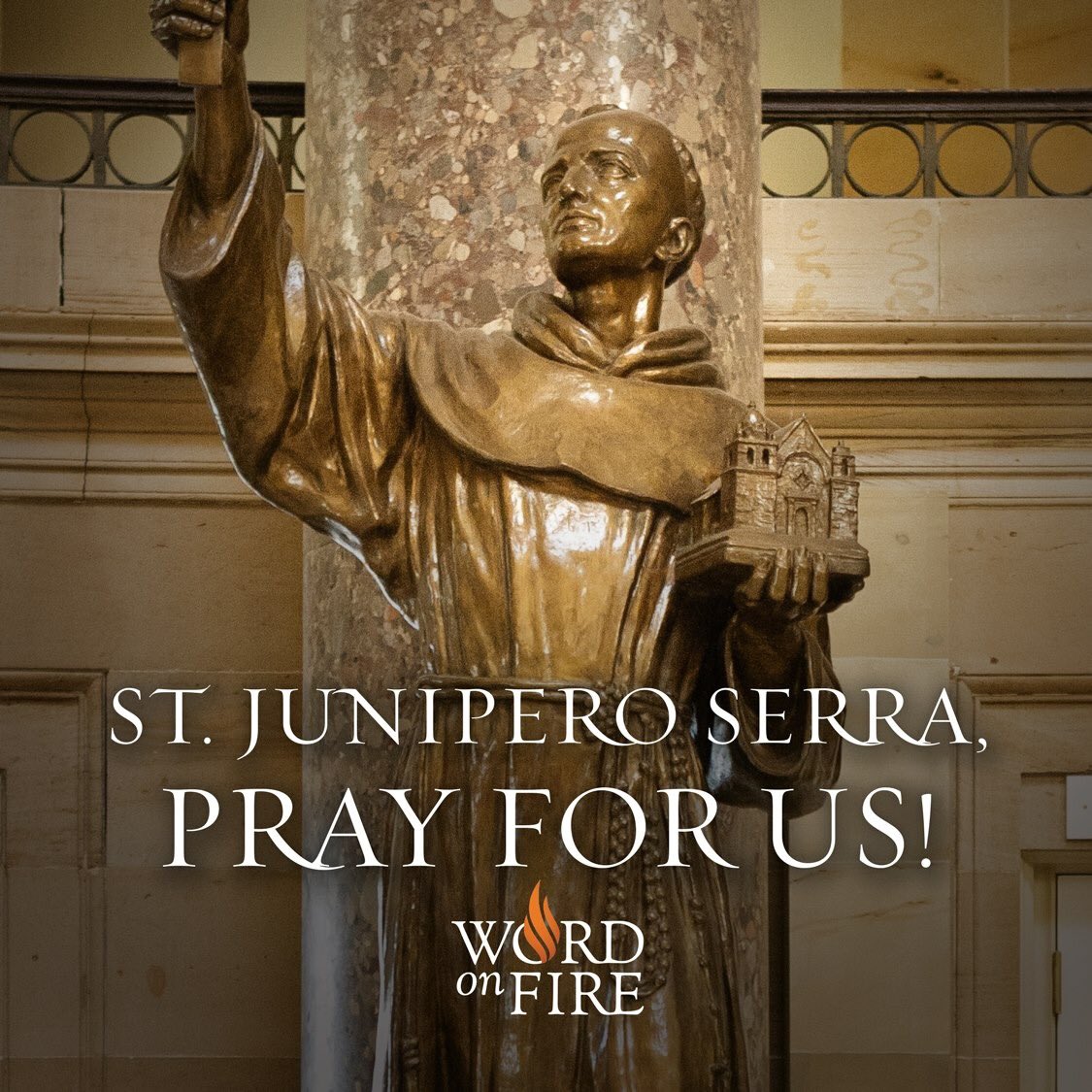1. Magnificat today has a meditation from Luigi Giussani. It’s classic Giussani. Totally untweetable.
A taste: He describes the life of the “new man” — the Christian, baptized in Christ. He who has come to see this faith as the radical gift it is, challenging and transforming. He no longer lives for himself,
but for him who died and rose for us…. The new man lives for him who died, who was killed, who was defeated, and who, in coming back to life, has given proof of his victory over death. Living for him is as disturbing as can be….
He describes a “new culture” that is the Christian difference:
a new awareness of oneself and of the common journey; it also implies a new morality….aided by a new correction, a new way of sharing the stringing towards the ideal and of forgiving one’s weakness regarding the ideal. This metanoia implies the experience of free giving as the supreme imitation of Christ and of mercy as the Mystery’s way of behaving towards human sin. For one who lives no longer for himself but for God’s “you” turns out to be not a selfish “I” but a self that affirms the free giving of the Creator Mystery, which belongs totally to the unity that originates in baptism, unity of self and unity with others. The “I-you” relationship between Christ and me is a relationship that carries in me all those who share in Christ, as if they were one.
As with just about everything from Guissani – founder of the Communion and Liberation movement, it paints a portrait of the Christian life, with all its Passion. It is it exactly, and you have to read it five times and you are still not quite sure you get it. Because it’s to pray with. It’s to move you forward. Keep reading. Keep praying. Keep at it. That’s the message. Keep at it. This is good. Stay with Jesus.
And before we leave this first item … for your amusement:
I just put something in MS Word about Luigi Giussani and my spellcheck just totally went Italian
— Kathryn Jean Lopez (@kathrynlopez) February 27, 2015
2. I was reminded this afternoon after Mass that it does not take that much time to pray the stations of the cross, not as much as we might think on a “busy” Friday …
(Photo taken on my Blackberry, from St. Francis Assisi Church in Manhattan.)
Here are stations reflections with the persecuted in the Middle East in mind.
3.
Praying "in Christ" means that we seek God's will in all the circumstances of life- even in what is painful and disappointing.
— FrSteveGrunow (@FrSteveGrunow) February 26, 2015
4. What I opened to in St. Josemaria Escriva’s The Forge this morning:
Whenever you see that the glory of God and the good of the Church demand that you should speak out, you cannot remain silent.
Think about it. Who would lack courage before God and in the face of eternity? There is nothing to be lost and instead so much to be gained. Why do you hold back then?
His aspirations in The Way, The Furrow, and The Forge are great guideposts in sanctifying your day. One an hour, on the hour? However you can do it, it’s a good habit to get in. (You don’t have to be in Opus Dei to do it!)
5. 5 reasons every Catholic gentleman should love St. Joseph.
I’ve been thinking of him and Mary on the flight to Egypt more and more, as Christians flee …
6. St. Francis in D.C. (#OPPower link)
7. From the Mirror of Love by Saint Aelred in the Liturgy of the Hours today (bold is mine, if you have to read quickly!):
The perfection of brotherly love lies in the love of one’s enemies. We can find no greater inspiration for this than grateful remembrance of the wonderful patience of Christ. He who is more fair than all the sons of men offered his fair face to be spat upon by sinful men; he allowed those eyes that rule the universe to be blindfolded by wicked men; he bared his back to the scourges; he submitted that head which strikes terror in principalities and powers to the sharpness of the thorns; he gave himself up to be mocked and reviled, and at the end endured the cross, the nails, the lance, the gall, the vinegar, remaining always gentle, meek and full of peace.
In short, he was led like a sheep to the slaughter, and like a lamb before the shearers he kept silent, and did not open his mouth.
Who could listen to that wonderful prayer, so full of warmth, of love, of unshakeable serenity–Father, forgive them–and hesitate to embrace his enemies with overflowing love? Father, he says, forgive them. Is any gentleness, any love, lacking in this prayer?
Yet he put into it something more. It was not enough to pray for them: he wanted also to make excuses for them. Father, forgive them, for they do not know what they are doing. They are great sinners, yes, but they have little judgment; therefore, Father, forgive them. They are nailing me to the cross, but they do not know who it is that they are nailing to the cross: if they had known, they would never have crucified the Lord of glory; therefore, Father, forgive them. They think it is a lawbreaker, an impostor claiming to be God, a seducer of the people. I have hidden my face from them, and they do not recognise my glory; therefore, Father, forgive them, for they do not know what they are doing.
If someone wishes to love himself he must not allow himself to be corrupted by indulging his sinful nature. If he wishes to resist the promptings of his sinful nature he must enlarge the whole horizon of his love to contemplate the loving gentleness of the humanity of the Lord. Further, if he wishes to savor the joy of brotherly love with greater perfection and delight, he must extend even to his enemies the embrace of true love.
But if he wishes to prevent this fire of divine love from growing cold because of injuries received, let him keep the eyes of his soul always fixed on the serene patience of his beloved Lord and Savior.
8.
#Lent is the time for #TotusTuus, the time to renew our commitment to love the Lord, our God, with all our hearts and minds and strength.
— Bishop Olmsted (@BishopOlmsted) February 27, 2015
9. Down with the Struggle or Up with the Cross? A Word to Priests, Catechists, and Parents
10.
"Do not hesitate to visit the sick, because for such deeds you will be loved." (Sirach 7:35)
— Sr. Veronica Young (@sistervpaul_) February 27, 2015
PLUS: Another Catholic list!













